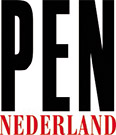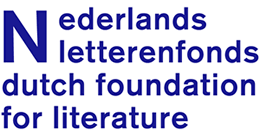Toespraak van Job Degenaar bij WiPC/ICORN congres
Bij de opening van de ICORN/WiPC-conferentie op 26 mei jongstleden, in De Duif te Amsterdam, hield Job Degenaar, sinds tien jaar aanvoerder van het WiPC in Nederland, onderstaande toespraak. Hij wijst hierin op het belang van het diplomatieke werk van PEN voor enkele honderden gevangen schrijvers wereldwijd, de meesten in Oost-Azië. “Wat we doen, is contact zoeken met regeringen en diplomaten en natuurlijk andere PEN-centra voor advies over de beste manier om in actie te komen; het steunen van gevangen schrijvers door kaarten te sturen; hun verhalen een podium geven in ons eigen land; hun werk vertalen; ze een naam en een gezicht geven.”
“In a rich and democratic country as The Netherlands there is still freedom of speech and expression. There are no writers in prison.
As a writer at the sunny side of the world you can do two things. Enjoy your luxury free life and write as a free human being about your free life. Or enjoy this luxury and write, but also try to support your colleagues at the shade side of the world that can’t defend themselves: the path less travelled by, as Robert Frost should say.
Many of you, here gathered, do the same. You try to do something for writers who are in big trouble, writers, not criminals, who are in prison, or under threat, or who have killed with impunity, writers who are unable to help themselves: you can’t open a prisoner’s door from inside. Most of them live in countries with dictatorial governments as China and Vietnam or with powerless governments, like Mexico and Honduras: There is no distance between writers, only between the circumstances writers have to live.
In my capacity of the national WiPC Chair, for nearly 10 years now, I became a member of the international PEN-community – and I’m proud to be so. Most of our work is in silence, in the lee, because of diplomatic reasons. It needs carefulness and hidden actions, which is not the same as chicken-heart: when lights are spotted on a writer who is in danger, he could become in more danger. You always have to keep in mind what you want to reach: not your so-called bravery, but the life of a colleague who is unable to fight for himself. The Dutch WiPC is at this moment especially focused on actions for East-Asiatic countries where most of the writers in the world are imprisoned.
What we do, is seeking contact with governments and diplomats, and of course with other PEN-centres for consultation about the way how to take action, supporting imprisoned writers by sending cards to them, telling their stories in our own country, translate their work and give them a name and a face. The basic principle for our work is the dialogue, not the confrontation. You can’t win anything by offending regimes if you want to change their minds.
To mention three small, recent successes from our centre: we received from the Vietnamese Nguyen Hũu Caũ, who was freed after 40 years imprisonment, and his family, personal thanks for the work we have done.
Together with a French sinologist, we nominated the Chinese Li Bifeng for the American Hellman-Hammett Grant two years ago, and translated some texts of him into Dutch. He received the award. Unfortunately he is still in jail. Our work continues.
We also supported the foundation of the North Korean Writers in Exile Centre and the South-Korean president Lee Gil-won did a lot for them. And now some work of them also has been published in important Dutch papers and in a literary magazine.
David van Reybrouck, from PEN Flanders, once said: ‘WiPC is the core business of PEN’ and Larry Siems, from PEN America, summarized in Kyrgystan what should be the main subject in conferences like these: ‘The key core issue is dynamic engagement on every case’.
Well, let’s be engaged. I wish you a very pleasant and inspiring time here in Amsterdam.”





